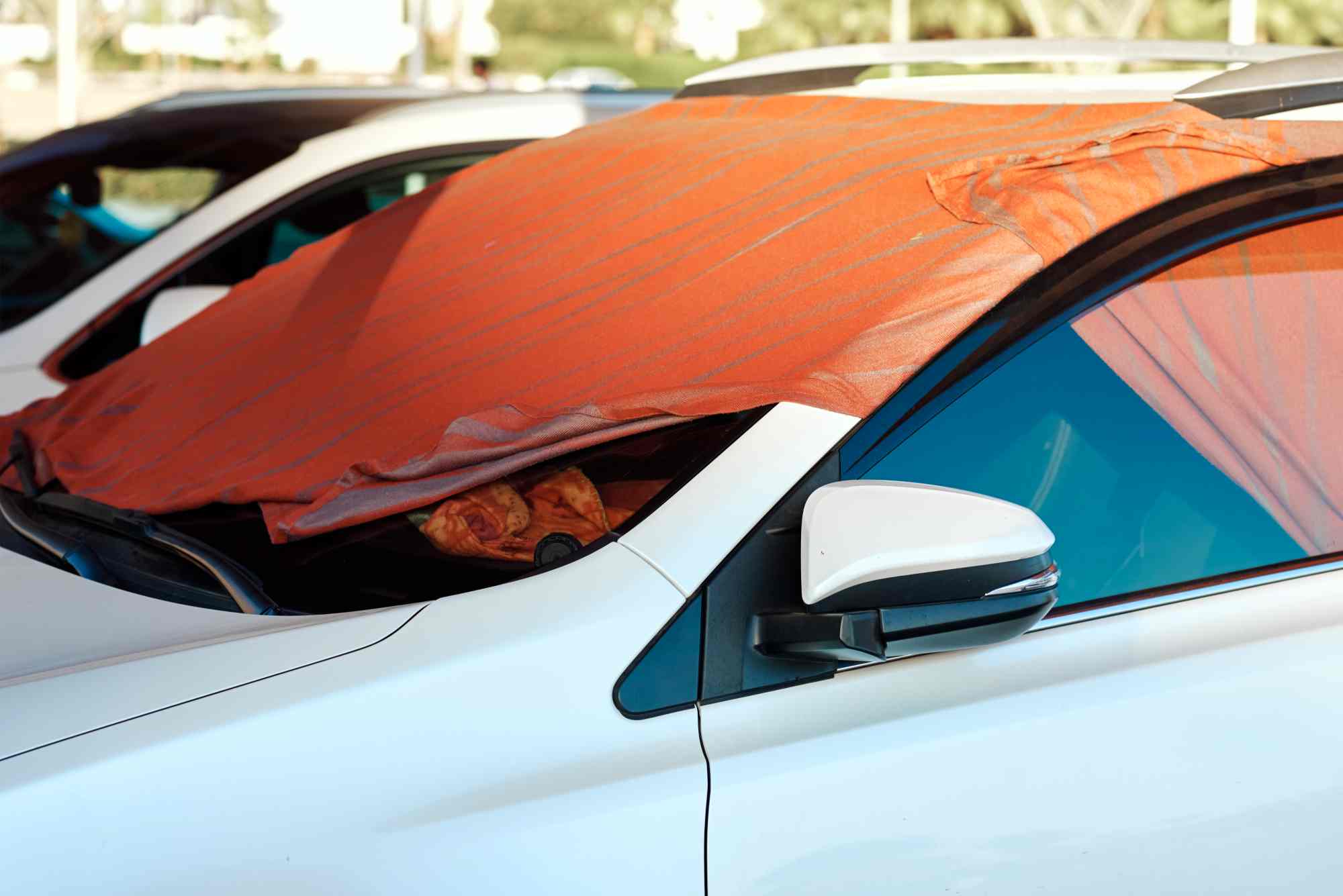9000+ Cashless Garages
1.2 Cr+ Policies Sold



Car insurance Online, Up to 90% Discount
It's a Brand New Car
How to Protect Your Car from Sun?

Car owners know the discomfort of sitting in a vehicle in direct sunlight. Now, not only can it impact your health, but also that of your car. Keeping your vehicle in direct sunlight can damage its paint, upholstery, engine and other components, affecting performance and maintenance costs.
However, by following a few simple tips, you can prevent this damage and enhance the longevity of your vehicle. Keep reading for a comprehensive overview.

Table of Contents

Why Should You Protect Your Car from Heat?
Here is how sun heat can damage different parts of your car:
- Fading of the Paint: Prolonged exposure to scorching heat and high temperatures can lead to paint fading or may reduce its shine.
- Tyre Damage: High temperatures make tyres lose pressure and go flat.
- Interior Damage: Too much heat can crack the dashboard and harm the seats and upholstery.
- Engine Failure: During the summer heat, engine oil and other fluids can dry up, causing the engine to overheat and fail.
7 Best Practices to Protect Your Car from Sunlight
Following are some of the best ways to protect your car from direct heat:
1. Regular Washing and Drying are a Must
While driving, dirt and grime build up on your car. If these bits stay on too long, they can get hardened by the sun and cause damage to the paint. Regular washing helps get rid of such materials and keeps your car shiny. Use a soft cloth to wipe off specks of dust.
2. Wax Your Car
Washing your car removes dust particles temporarily. Meanwhile, applying a wax coat protects against scratches and UV damage. Waxing your car twice a year is an excellent solution in this regard.
Consider adding a ceramic coat that lasts long and is resistant to heat.
3. Park in the Shade
Many people suggest parking in the shade to avoid too much heat. If you can't find indoor parking, try to leave your car under a tree or next to a building to block the sun. It's smart to pay for parking rather than deal with costly repairs later.
4. Check Tyre Pressure Levels
Heat expands the air inside the tyres. Summer heat waves can damage and even cause tyres to explode. Checking the tyre pressure levels daily is an ideal solution. Consider performing the check in the morning for accurate readings.
5. Monitor the Fluid Levels Regularly
Hot weather can evaporate your car's fluids. Your vehicle might stop working mid-trip if you don't monitor fluid levels often. To ensure a trouble-free ride, watch these fluid levels in the summer months:
- Coolant: First, check the coolant level. If it looks hazy, you will have to replace it. Otherwise, just fill it up to the ideal level.
- Motor Oil: It is advised to check oil levels once a month. However, the engine may absorb more oil during summer due to overheating. Consider monitoring oil levels often to avoid sudden breakdowns.
- Transmission Fluid Updates: Your car’s transmission fluid can put you at risk while driving. Check the fluid level and fill it to the right level using a small funnel through the dipstick tube. Leave a buffer time or drive slowly to avoid leakage.
6. Use Car Covers
A good car cover protects your vehicle from scratches, heat, bird poop, and dust. So, it is an ideal practice to put a cover on your car if you don't drive daily.
7. Keep Windows Slightly Open
Consider keeping the windows open if your vehicle is exposed to direct sunlight. This will reduce internal heating and damage, allow air circulation inside the car, and protect the dashboard and electronics from heat damage.
Maintenance Tips to Mitigate Heat Damage on Your Car
If your vehicle gets overheated, it can lead to damage and expensive repairs. Here are a few mitigation tips:
Keep a Check on the Air Conditioning System
The air conditioning system regulates the internal temperature during peak summer days and prevents damage. Check if it is working properly before summer arrives to prevent heat damage.
Monitor the Temperature Gauge
Extreme temperatures or heat waves can evaporate fluids quickly or reduce coolant levels. Keeping an eye on the temperature gauge will help you act promptly and reduce the risk of car breakdowns.
Keep an Emergency Kit Handy
Overheating can lead to a flat tyre, a dead battery, or even an engine failure. Carry an emergency kit for these unexpected events. Include jumper leads, a torch, a phone charger, and a jerry can.
Tips to Protect a Car’s Interior from Sun Damage
The scorching sun can damage the car's interior parts and the electronic systems in the cabin. Here are a few tips to protect your car’s interior from sun damage:
Use Windscreen Protectors
Windscreen protectors protect cars from heat damage by preventing internal heating and protecting the stereo, dashboard, and electronics. Thus, a good windscreen protector protects the car’s interior from sun damage.
Use Window Shades
Window shades protect the cabin from harmful UV rays and heat damage. They also regulate the car’s internal temperature and protect the glass from damage by the sun.
Apply Window Tints
Window tints block UV rays from entering the car and prevent internal damage. They deflect 99.9% of UV rays, guarding the cabin and interior parts from the sun.
Use UV-Protective Spray
A UV-protective spray can reduce the adverse effects of heat and even help prevent sun damage. For the best results, spray it on the parts inside the car cabin, like the stereo, dashboard, seats, and upholstery.
Use Car Seat Covers
Leather and vinyl seats are prone to heat damage. Internal overheating can cause these materials to crack or fade. High-quality car seat covers offer comprehensive protection for your seats against dust, spills, and cracks.
Install UV-blocking Window Films
Such window films can reflect UV rays and protect the vehicle’s interiors. They help block such rays from penetrating the car cabin, thus helping maintain a comfortable temperature.
Keeping your vehicle safe from sun damage is essential for longevity and performance. By following the tips above, you can effectively minimise heat damage to your car without spending much money.
Also, you should regularly perform vehicle maintenance to identify heat damage and take the necessary precautions.













